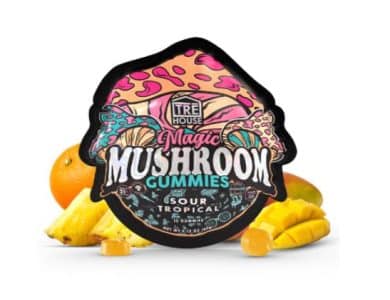Why Survival Foods are Essential for Emergency Preparedness

Natural disasters, such as hurricanes, earthquakes, and floods, can hit us when we least expect it. These disasters can disrupt our lives and make it impossible for us to get to grocery stores and food supplies. That’s why having a stockpile of survival foods is essential for emergency preparedness. In this blog post, we’ll explore the importance of survival food, the types of foods that are good for emergency situations, and how to create a long-lasting food storage plan.
Why survival foods are important:
Survival foods are important because they provide us with the necessary nutrients and calories that our body needs in emergency situations. Having a good supply of food can help prevent starvation and dehydration, which can be life-threatening in certain circumstances. Besides, emergency situations tend to last for days or even weeks, which means that we need to have enough food to sustain ourselves in the long run. Moreover, we have to consider that grocery stores may run out of food during emergencies, or we may not have access to them due to blocked roads and closed transportation systems.
Types of foods best for emergency situations:
When it comes to emergency foods, we want something that can last for a long time without spoiling or requiring refrigeration. Non-perishable foods are ideal here, as they don’t require any special storage and can be stored for months or even years without going bad. These types of foods include canned goods, dried fruits, nuts, energy bars, jerky, and freeze-dried meals. When choosing foods, we have to consider our dietary needs, as well as any allergies or sensitivities that we may have.
How to create long-lasting food storage:
Creating a long-lasting food storage plan is important, and it requires some planning and preparation. The first step is to decide how much food we need, depending on the number of people we’re preparing for and the duration of the emergency. We should aim for a three-month supply of food for optimal preparedness. Next, we need to stock up on non-perishable foods that are rich in nutrients and easy to prepare. These foods should be stored in a cool, dry place and away from direct sunlight or any heat sources. We also need to keep track of expiration dates and rotate our food supply regularly to ensure that nothing goes bad.
Benefits of survival foods:
Having a good stockpile of survival foods has many benefits. For one, it provides peace of mind knowing that we’re prepared for any emergency situation. It ensures that we don’t have to go hungry or risk starvation in case of a disaster. It also eliminates the need for panic buying or rushing to the store at the last minute, saving us time, money, and stress. Additionally, preparedness is not only about getting through an emergency but also about being self-reliant and taking responsibility for our own well-being.
Disasters and emergencies can happen to anybody, at any time, anywhere in the world. They can be caused by natural disasters such as hurricanes, earthquakes, floods, forest fires or even man-made occurrences such as power outages, civil unrest or pandemics. In such situations, you may not have access to food, water, and other essentials. That’s why it’s crucial to have survival foods for emergency preparedness. In this article, we’ll delve into why you should have emergency foods, the types of essential survival foods you should have in your emergency kit and the benefits of emergency foods.
Reasons why you should have emergency foods
There are several reasons why you should have survival foods for emergency preparedness. First, having emergency foods can help you save money in the long run since you’ll be buying in bulk, which is cheaper than buying in small quantities. Second, emergency food can serve as a backup plan when your regular source of food isn’t available, keeping you nourished during emergencies. Third, emergencies can cause panic and stress, with rationing of food resources, emergency food can reduce some of that stress and fear of running out of food.
The types of essential survival foods
When building your emergency food supply, there are several essential food types that you should consider. First, it’s critical to have a non-perishable source of food that can last a long time. Great options here could be canned goods, jerky, nut bars, freeze-dried foods, and MREs (meals ready-to-eat), which have a long shelf life and are usually high in proteins and carbs.
Second, stocking up on grains like rice, pasta, oats, and quinoa can also be essential since these are the staple foods in many households. Additionally, you can also store freeze-dried fruits and veggies that retain nutrients and can last long periods without refrigeration.
Third, having a good source of hydration is necessary. You can store water in containers and choose to filter them later or opt for a water filtration bottle. You may also consider electrolyte drinks or juice boxes that can provide essential vitamins and minerals required by your body during emergencies.
Benefits of emergency foods
Apart from the cost-saving and backup plan benefits, there are several other benefits of having emergency foods. Having emergency foods will reduce stress and anxiety levels, which are usually heightened during emergencies. They can help your body to stabilize and stay nourished. Moreover, such foods can help in increasing resilience and confidence during emergencies, enhancing your mental and physical preparedness levels.
Additionally, emergency foods can help you keep hiking and in the outdoors without requiring frequent trips to the grocery store. It’s also a great source of convenience in your routine activities since you may be able to pack lunch quickly and be on your way.
Conclusion:
In conclusion, being prepared for emergency situations is crucial, and survival foods are an integral part of that preparedness. They provide us with the necessary nutrients and calories to sustain ourselves during times of crisis. By stocking up on non-perishable foods that are easy to prepare and store, we can ensure that we’re prepared for any eventuality. Finally, as we’ve seen, there are many benefits to being prepared, including peace of mind, self-reliance, and a sense of responsibility. With these factors in mind, it’s clear that survival foods are essential for emergency preparedness.
Emergency preparedness is crucial, and having survival foods is one of the most important aspects of disaster readiness. As we’ve highlighted in this article, there are several reasons why you should have emergency foods, the types of essential survival foods, and the benefits of having them. By having a stockpile of emergency foods, you can reduce your risk of panic without food, provide essential nutrients, and alleviate some of the stress and fears that arise during disasters. So start stocking up on emergency foods today and be prepared for any emergency or disaster that may come your way.




